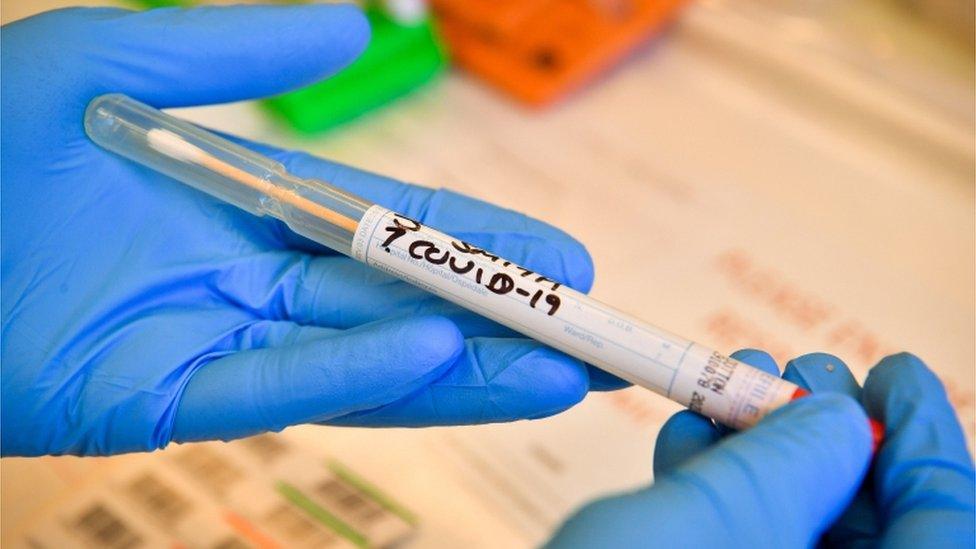Coronavirus: Public Health Wales says treat distancing seriously
- Published
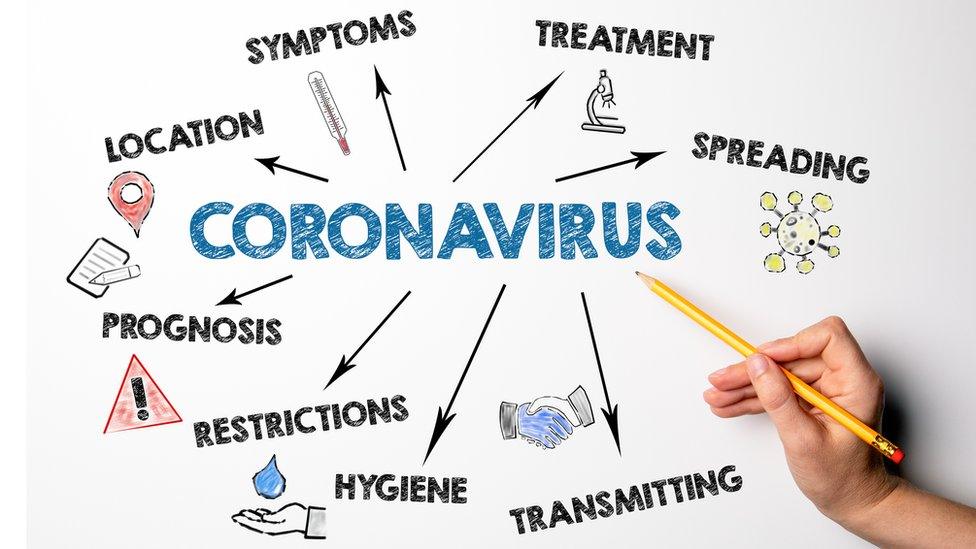
Everyone needs to treat social distancing "with all seriousness", Public Health Wales (PHW) has warned.
It has said that the over 70s and vulnerable health groups might soon be asked to cut all contact for a "considerable time" to protect themselves.
PHW incident director Dr Giri Shankar believes the 136 confirmed cases here are "the tip of the iceberg".
He also said there may be testing soon for key NHS workers.
Here, Dr Shankar answers some key questions.
What's the big change?
The main changes that have happened are around household isolation - so if there is any member of the household showing coronavirus symptoms - so a new, continuous cough or a high temperature - then not only the person with the symptoms but everyone else in the household are required to stay isolation for 14 days. That's the big change, as before it was just the person with symptoms, and for seven days.
We're also asking people to limit their contact with people - so working from home, avoiding using public transport, avoiding cinemas, pubs, malls, clubs. Wherever possible try to minimise physical contact.
If we're asking people to minimise contact they must do it with all seriousness. We know it's out of the ordinary and unprecedented but it's with a purpose
What about the over 70s?
If you're over 70 and for those in vulnerable groups, there will be further guidance issued later this week - for those people to be shielding themselves from the rest of society. Why are we asking this? Simply because this virus has more adverse outcomes for the elderly, so we're trying to protect the most at risk. It's important to recognise the advice about social distancing - if we're asking people to minimise contact they must do it with all seriousness. We know it's out of the ordinary and unprecedented, but it's worth mentioning it's with a purpose, to protect the elderly and the most vulnerable.

What would 'shielding' mean?
Shielding would be asking people to cut all contact to the external world for a considerable time, with of course packages to help them with daily living, and ways of getting food in. The main message is avoid contact with other individuals, so not having a chat with your neighbour [or outdoors stay at least two metres away], but if it means going for a walk on your own, that's acceptable.
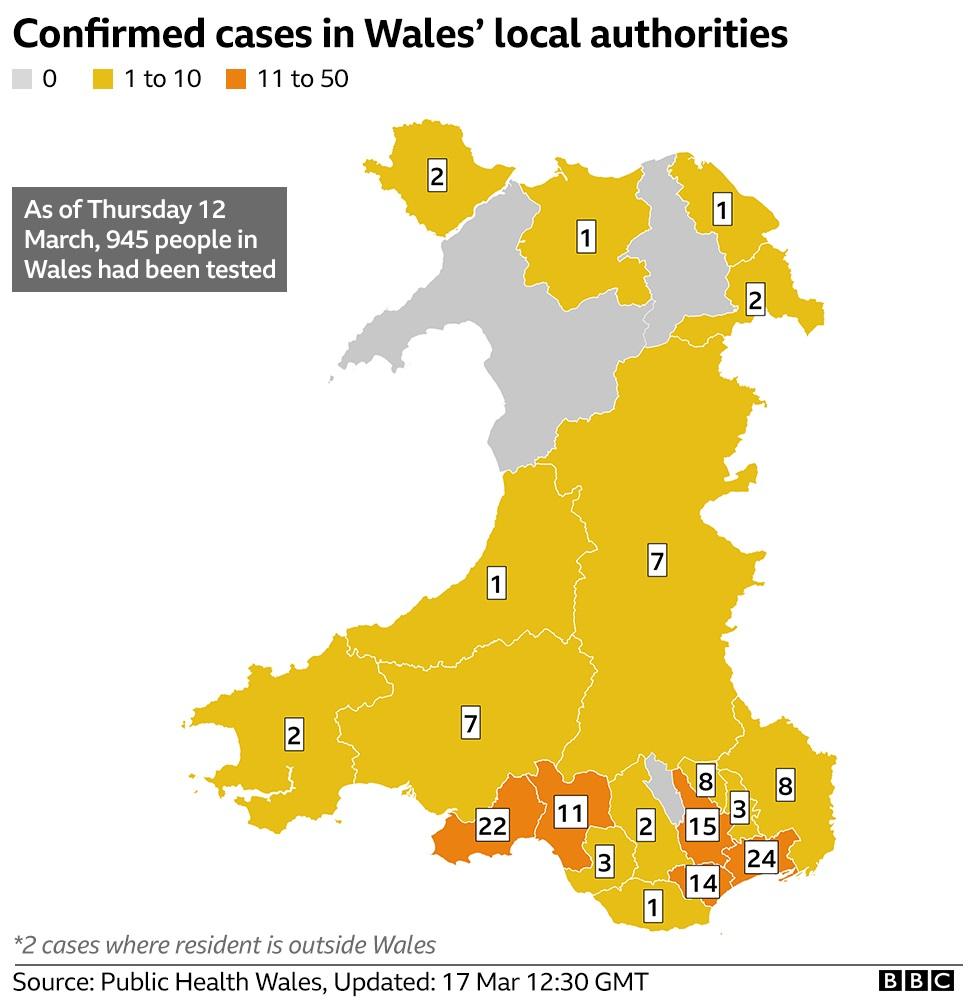
There were 136 officially confirmed cases on Tuesday but likely to be hundreds more
How many cases are there out there in Wales?
The reason we are now in this "delay" phase is there is sufficient evidence of community transmission. Stopping short of testing everybody, we'd not be in a position to give an accurate number, but it's reasonable to estimate there are a lot more cases in the community than what we're reporting because we're only testing the tip of the iceberg. There could be hundreds more cases.
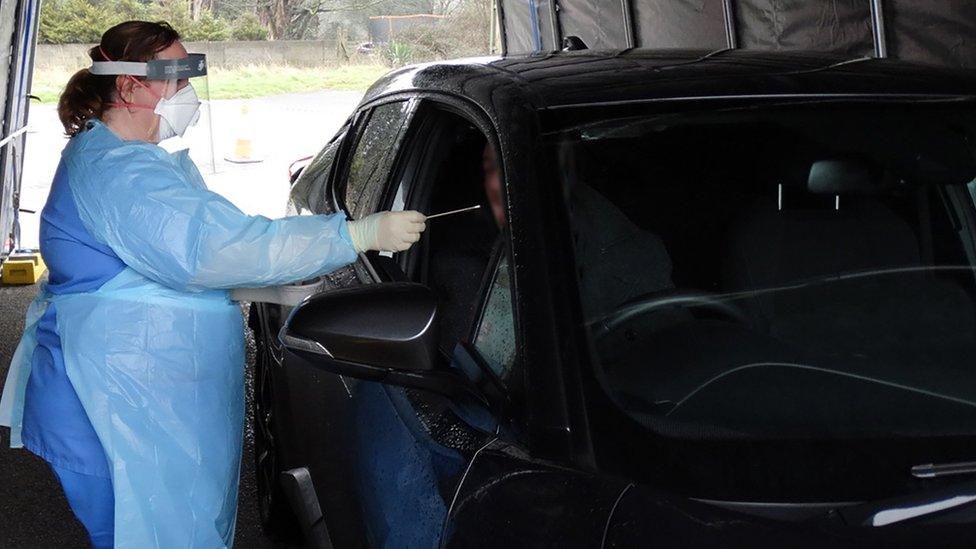
Demonstrating how testing will work at a mobile unit - but this has been stopped
So why did you change the testing regime?
We want to test those who will benefit the most from a clinical management point of view - so for people with serious pneumonia-type illness, respiratory distress and high temperature who require critical care and admission into intensive care, we want to know if they have coronavirus. And not only for the health of the patient concerned but for the health workers looking after them, so we prevent transmission to them and patients in the same hospital.

There have been calls to test health care workers - what's the position?
We're in discussion with Welsh Government [and] suggesting to our chief medical officer that it would be prudent to test certain categories of health workers under certain criteria. We're hopeful in the immediate future we'll be able to issue some guidance on that. Health workers make up a significant proportion of the workforce in Wales.
We want to make sure we don't keep too many off work if they don't have coronavirus. If they do have a confirmed positive infection - and after hopefully they recover - we know the chance of them getting the infection again is less likely, thanks to immunity, so they can be deployed for caring for the sicker patients going forward in the pandemic.

What has taken you to this point?
The scientific advisory group (Sage) has been giving advice to government, as well as modelling, and seeing what is happening, especially in Italy, Spain and France.

How long could this last?
It's very difficult to put a time frame on it. For these social distancing measures, they will have to be for at least a couple of months, if not more.

What about the knock-on effects on other health issues, such as mental health for instance?
Undoubtedly [there will be an effect]. We're asking something unprecedented. But go back to the underlying purpose - it's to save lives. In the process, we recognise the knock-on effects. It's about what we can do to mitigate that [and] it's about dealing with those.
Dr Shankar was being interviewed by BBC Wales health correspondent Owain Clarke.

A SIMPLE GUIDE: What are the symptoms?
AVOIDING CONTACT: Should I self-isolate?
LOOK-UP TOOL: Check cases in your area
MAPS AND CHARTS: Visual guide to the outbreak
VIDEO: The 20-second hand wash

- Published23 March 2020
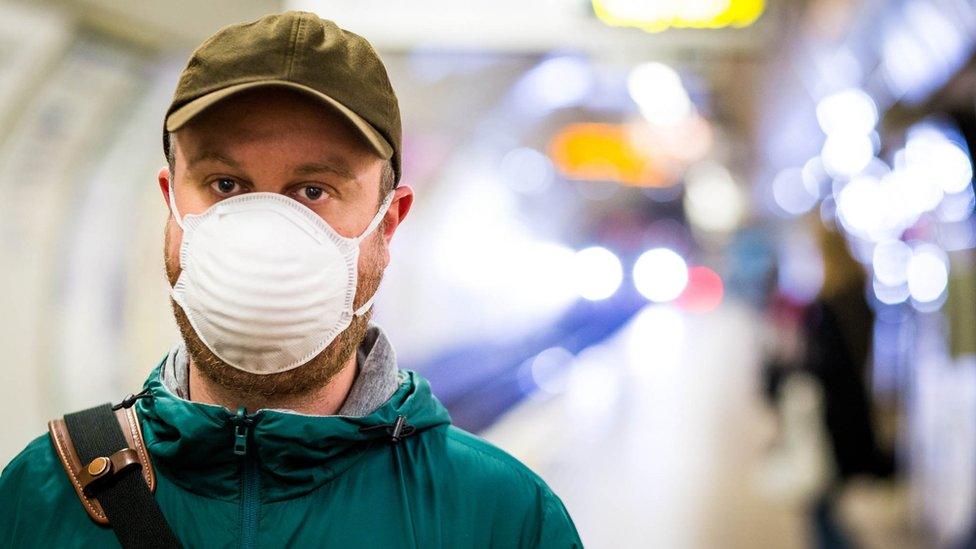
- Published14 March 2020
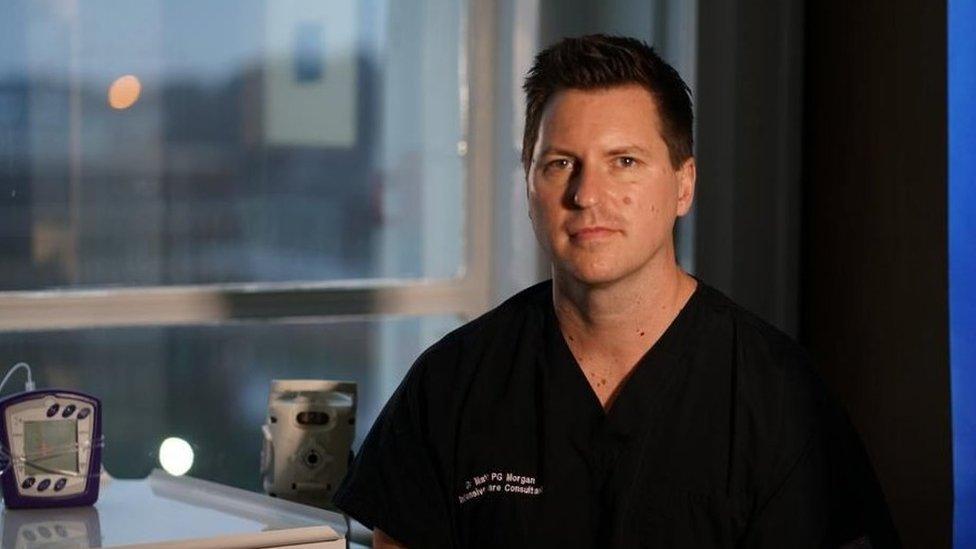
- Published12 March 2020

- Published14 March 2020
